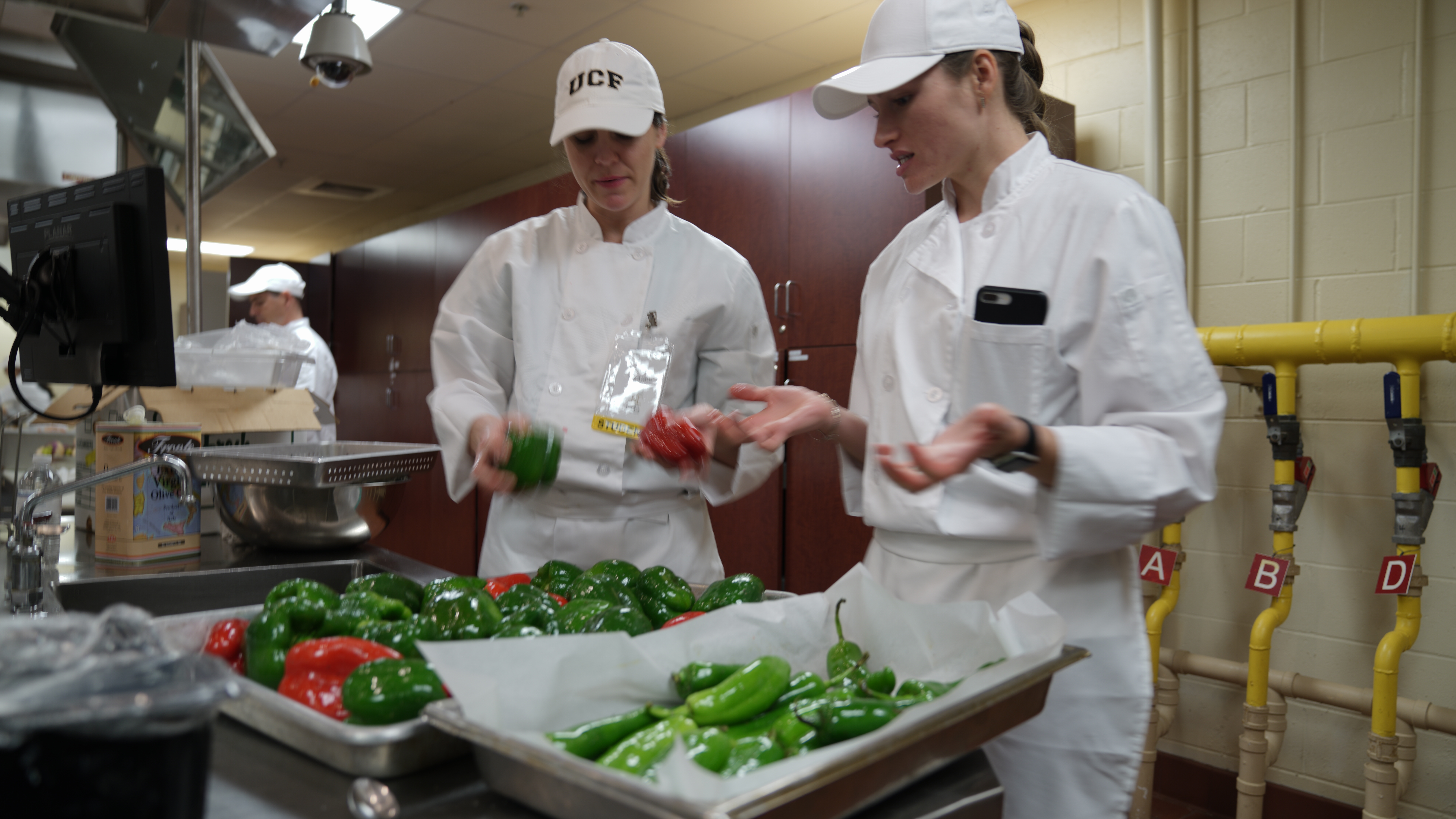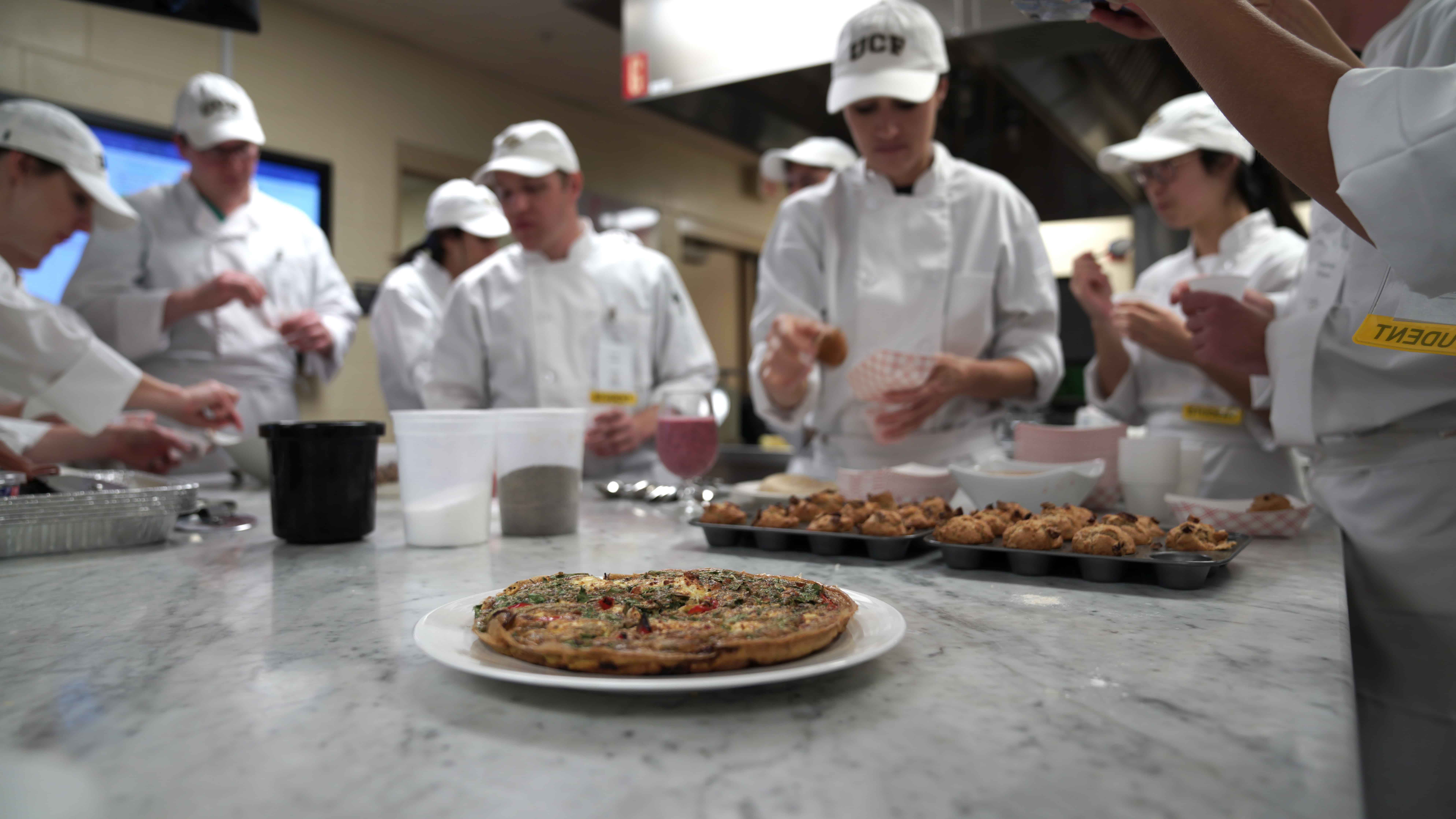
UCF medical student Emily Freisen carefully measures out a teaspoon of mustard that will go into salad dressing. At other workstations, her classmates are chopping carrots and peeling onions. The group of 13 students has traded in their white coats for chef’s whites as part of a six-week collaborative culinary medicine course run by UCF’s College of Medicine and the Rosen College of Hospitality. The elective is designed to help future physicians learn about preparing food for the best nutrition and taste so they can educate their patients on better eating habits.
Dr. Robert Karch, a pediatrician at Nemours Children’s Hospital and an assistant professor for the medical school, leads the course based on a culinary medicine program started at Tulane University. It includes class time, kitchen time and community outreach, where students help area residents learn about healthy foods such as fruits, vegetables and grains. Recently, they went to the Hebni Nutrition Center in downtown Orlando’s Parramore community to show residents how changes in diet can help conditions like diabetes and high blood pressure.
The Centers for Disease Control and Prevention (CDC) report that 70 percent of people over age 20 are either overweight or obese. That’s an estimated 160 million Americans. Our unhealthy eating habits cause multitudes of preventable and potentially deadly diseases, including heart disease, stroke, type 2 diabetes and certain cancers.
As physicians, we can help our patients prepare and eat healthier foods. And thanks to this UCF-Nemours partnership, we are giving doctors-in-training specific tools and skills they can share with their patients.
At a recent class, head chef Robb Seltzer from the Rosen College explained to our students why fresher produce tastes better and is better for you. “The produce that you buy at your local grocery store on average was harvested eight weeks ago,” he said, “and many of the nutrients are lost during that time.”
Many consumers never see produce until it reaches the grocery shelves, so on the first day of class, students traveled to nearby farms in Mount Dora to understand the process of growing and harvesting vegetables.

“Low fat foods can still taste good,” said Seltzer, who blames some of our bad eating habits on our limited palates. “We need to be willing to try new foods, and when we do it’s usually, ‘Oh, wow, that tastes good.’” To prove his point, the medical students learned to cook spaghetti in different ways from low fat and vegetarian to traditional spaghetti with meat sauce. “No one is going to make healthy food choices if it doesn’t taste good,” said Seltzer as he demonstrated how to enhance flavors with spices and by using alternative healthier ingredients like more fruits and yogurts in desserts.
Brian Nagle is in his fourth year of studies at the College of Medicine. He started a food blog in 2010 and said he’s always been interested in food. He also holds a master’s degree in public health, so the culinary medicine course was of great interest.
“Originally, the blog was a place to share family recipes, and when I became a busy med student, I began sharing time-saving cooking tips,” he said. “And with what I’m learning in class, I hope to incorporate nutrition when I’m talking to my patients to make positive changes to their lives.”

